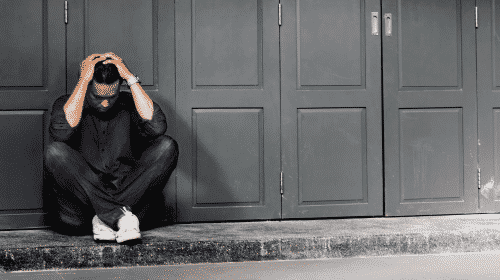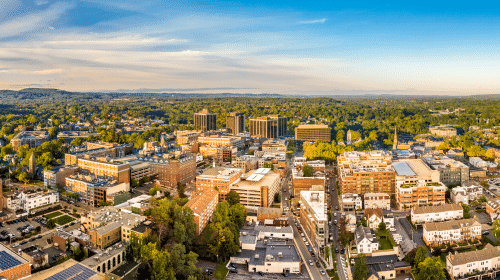Expert Insights
When I hear about the alarming number of deaths from fentanyl “overdoses” I am both saddened and angered. Why do we refer to deaths from the use of drugs that were laced with fentanyl without the users’ awareness as “overdoses”? I think very few people intentionally consume fentanyl; it is most often surreptitiously added to illicit drugs. Let’s call a spade a spade. Innocent people are being poisoned. Where’s the outcry and call for action?
Rita Milios
How Much Does Drug Rehab Cost in New Jersey?
New Jersey is ranked 15th nationwide in terms of addiction treatment affordability, with an average cost of drug and alcohol rehab of $56,570 (without insurance).
- Medical detox is the most expensive, with an average cost of $139,466
- Long-term inpatient drug rehab in New Jersey costs an average of $49,919
- Outpatient addiction treatment in New Jersey costs an average of $8,295
- Outpatient methadone treatment is the most affordable, with an average cost of $7,370
 The cost of a rehab program in New Jersey can vary widely, depending on many factors – one of those main factors being the level of care provided.
The cost of a rehab program in New Jersey can vary widely, depending on many factors – one of those main factors being the level of care provided.
Inpatient treatment is typically more expensive than outpatient treatment, as it includes lodging and meals for the duration of treatment. Inpatient programs may also offer additional amenities, which can increase the cost of treatment. Inpatient treatment may range from $2,000 to $25,000 for a 30-day stay.
The lower cost of outpatient care may account for the popularity of these less-intensive, but still proven programs. Because patients continue to live at home during outpatient treatment, meals and lodging are not a cost factor.
Some outpatient programs, including those that are state-funded, offer low-cost treatment. Others may cost up to $10,000, depending on the length of treatment and the specific services provided.
How to Pay for Drug Rehab in New Jersey
As of 2024, there were over 410 drug rehab facilities across the state of New Jersey. These facilities accept several payment methods. Of those treatment facilities, the following numbers reflect how many accept their respective payment methods:
Private Pay + Insurance
You have options to pay for treatment in New Jersey. Many rehab centers will accept health insurance, and some will allow you to self pay. Each insurance is different in regards to the specific types of drug and alcohol care that it will cover. It’s important to talk with your insurance provider to understand in and out of network benefits and coverage.
Here are some of the following major private insurance carriers in New Jersey:
- United Healthcare
- AmeriHealth
- Horizon Blue Cross Blue Shield of New Jersey
- Aetna
Medicaid and Medicare
Due to the expansions made under the Affordable Care Act, if you or a loved one are struggling with addiction, you may have new access to services for treatment or recovery support. If you have Medicaid or Medicare, some or most of your rehab treatment may be covered, depending on your exact plan. This can include detox, in-patient rehab, and outpatient services.
Military Insurance
If you are a veteran, or have military insurance such as TRICARE, substance use treatment can be covered. TRICARE covers a variety of services such as inpatient care, medication assisted treatment, outpatient services, partial hospitalization programs, and residential care. Each Veterans Administration (VA) in the state of New Jersey has its own resources to ensure you get the help you need. Contact them for further assistance regarding their specific modalities and programs to start the process of getting admitted for treatment.
Tribal Funding/Programs
The purpose of SAMHSA’s Tribal Opioid Response Grant (TOR) is to address the opioid crisis in Tribal communities. TOR has helped to address the lack of access to treatment and has increased access to culturally appropriate and evidence-based treatment, including medication for the treatment of opioid use disorder. These programs help fund traditional treatment practices combined with cultural practices. This can include sweat lodges, drum circles, and pow wow camps.
Other Low-Cost Options
Each drug rehab is different, often depending on the amenities and luxury settings featured. Other low-cost options can vary between each center. Some programs may offer financial aid such as scholarships to help pay for treatment. Other rehab centers may offer a sliding payment scale based on income. It’s important to talk with your provider to see what options they offer when it comes to paying for or accessing treatment.
Free Rehabs in New Jersey
New Jersey has some rehab centers that are funded by the state, which means they’re essentially free.
These programs are designed for individuals who don’t have insurance or have a low socio-econominc status, but need help for their substance use issues. State funded rehab facilities in New Jersey help you find the right treatment so you aren’t attempting unsafe at-home detox practices or quitting cold turkey.
These state-funded programs offer the same programs that private ones do; however, they also provide you with aftercare once you complete the inpatient portion of the program.
You can use the Substance Abuse and Mental Health Services Administration’s (SAMHSA) Directory of Single State Agencies for Substance Use Services website or other rehab directories to find local resources that will connect you to finding affordable drug and alcohol rehab options in the state of New Jersey.
Free Addiction Treatment Resources in New Jersey
Footprints to Recovery – Hamilton Township, NJ
Their drug rehab programs include medication assisted treatment, partial hospitalization programs, and intensive outpatient programs. They also provide specialized services for parents, people over the age of 35, military personnel, and members of the LGBTQIA+ community. They offer trauma informed care and cognitive behavioral therapy. Complementary therapies like experiential therapy and chiropractic care are also offered.
Sunrise House Treatment Center – Lafayette, NJ
This addiction treatment center is located on 22 acres of private land. They provide a gender-specific medically supervised detox program in addition to medication assisted treatment, residential care, sober-living, and aftercare. They’re a faith-based program. They also have dedicated services for veterans and first responders. They offer cognitive behavioral therapy and 12 Step-focused individual, group, and family counseling. Complementary, evidence-based therapies are also available, including music therapy and mindfulness training.
Blue Crest Recovery Center – Paterson, NJ
This program is a dual-diagnosis recovery center that offers partial hospitalization, intensive outpatient services, outpatient programming, and aftercare services. They have a 12 Step approach that integrates clinical, spiritual, and holistic care. They also provide different therapy modalities such as cognitive behavioral therapy and motivational interviewing. They also have options for complimentary services such as fitness and wellness programs, nutritional counseling, yoga, meditation, mindfulness, pet therapy, psychodrama, and expressive art therapy.
Alina Lodge – Blairstown, NJ
This program is a dual-diagnosis rehab program for adults. They are New Jersey’s first addiction treatment center and is located on a private campus that is surrounded by forests and state parks. They offer medical detox, inpatient residential treatment, partial hospitalization program, outpatient, intensive outpatient programs, sober living, and aftercare.
SOBA New Jersey – New Brunswick, NJ
This program offers comprehensive addiction treatment for adults in a private, residential setting. They provide the following types of treatment: medically supervised detox, residential, partial hospitalization, intensive outpatient, outpatient, and aftercare services. They have a 12 Step focus. Additionally, you’ll have access to luxury amenities such as chef-prepared meals, private rooms, onsite sauna, a jacuzzi, and a recreation room.
New Jersey Alcohol and Drug Use Statistics

The number of admissions in New Jersey drug and alcohol rehabs increased to almost 100,000 admissions in 2019.2

Heroin and alcohol were responsible for most inpatient admissions. Cocaine, other opiates, and marijuana were listed less frequently.

In 2019, more than 60% of individuals seeking treatment in New Jersey chose outpatient programs.2

The highest admission rates were in Camden, Ocean, and Essex counties (more than 8,000 admissions each).2
Drug-related deaths in New Jersey have also been steadily increasing, particularly overdose deaths related to opioid use. In 2018, 2,900 drug overdose deaths were reported in New Jersey, nearly 90% of them involving opioids.3
Drug Laws in New Jersey
- Marijuana Laws in New Jersey: The laws regarding marijuana in the state of New Jersey allow for the use of medical and recreational marijuana; however, they also have mandatory minimum penalties for large amounts and/or sale of the substance. For example, those with a doctor’s recommendation may possess up to 6 oz of marijuana per month; but non-medical possession of that same amount is a felony charge punishable by 18 months of incarceration.
- New Jersey – DWI Laws, 1st Offense: To determine if you’re actually impaired, a police officer will put you through a series of field sobriety tests or take a measurement of your Blood Alcohol Level. If you are a first-time offender, your fine can range between $250-$400 and you can earn a jail sentence of 30 days. You must also attend a class called “Intoxicated Driver Resource Center” for 12 to 48 hours. You’ll also lose your driver’s license for seven to 12 months.
- Drug Testing Laws: Due to recreational use of marijuana, according to the New Jersey Legislature, no employer shall refuse to hire to discharge a person from employment due to their drug screen testing positive for marijuana. No action should be taken against any employee who does or does not smoke, vape, or otherwise use cannabis items.
- Drug Possession Laws in New Jersey:It’s unlawful for any person, knowingly or purposely, to obtain, or to possess, a controlled dangerous substance or controlled substance, with the exception of a valid prescription.
- Heroin, Cocaine, Methamphetamine (and all other illicit drugs except marijuana): Any amount: 3rd degree crime (3-5 yrs. in prison and a fine of up to $35,000)
- Marijuana:
- Less than 50g (or less than 5g of hashish): Disorderly persons offense (up to 6 months in jail and a fine of up to $1,000)
- More than 50g (or more than 5g of hashish): 4th degree crime (up to 18 months in prison and a fine of up to $15,000)
Resources
- U.S. Department of Health and Human Services. (2018). Principles of Effective Treatment.
- Department of Human Services. (2019). Substance Abuse Overview 2019.
- U.S. Department of Health and Human Services. (2020). New Jersey: Opioid-Involved Deaths and Related Harms.
- Substance Abuse and Mental Health Services Administration. (2021). Results from the 2020 National Survey on Drug Use and Health.
- Substance Abuse and Mental Health Services Administration. (2022). The Case for Screening and Treatment of Co-Occurring Disorders.
- Pettinati, H.M., & Dundon, W.D. (2011). Comorbid depression and alcohol dependence. Psychiatric Times, 28(6).
- National Institute on Drug Abuse. (2008). Comorbidity: Addiction and Other Mental Illnesses.
- Gielen, N., Havermans, R. C., Tekelenburg, M., & Jansen, A. (2012). Prevalence of post-traumatic stress disorder among patients with substance use disorder: it is higher than clinicians think it is. European journal of psychotraumatology, 3, 10.3402/ejpt, v3i0, 17734.
- Lawson, Nicole R. (2014). Posttraumatic stress disorder in combat veterans. Journal of the American Academy of PAs, 27(5).
- Ostacher, Michael J & Sachs, Gary S. (2006). Update on bipolar disorder and substance abuse: recent findings and treatment strategies. The Journal of Clinical Psychiatry, 67(9).
- Goretti, S. (2017). The relationship between personality disorders and substance abuse disorders. European Psychiatry, 41(S473-S474).
- Substance Abuse and Mental Health Services Administration. (2013.) Family Therapy Can Help. Substance Abuse and Mental Health Services Administration.
- Newsweek. (2021). America’s Best Addiction Treatment Centers.
- Map. (n.d.). SAMHSA Behavioral Health Treatment Services Locator. Retrieved December 12, 2022, from https://findtreatment.samhsa.gov/locator.html
- Department of Health. (n.d.). NJSHAD – Substance use. https://www-doh.nj.gov/doh-shad/topic/SubstanceUse.html
-
Stainton, L. H. (2024, March 8). NJ drug deaths appear on decline, but ‘still staggeringly high.’ NJ Spotlight News. https://www.njspotlightnews.org/2024/03/nj-data-suggests-drug-deaths-declined-2023-but-still-staggeringly-high/
- Treatment and Recovery | National Institute on Drug Abuse. (2023, September 25). National Institute on Drug Abuse. https://nida.nih.gov/publications/drugs-brains-behavior-science-addiction/treatment-recovery









